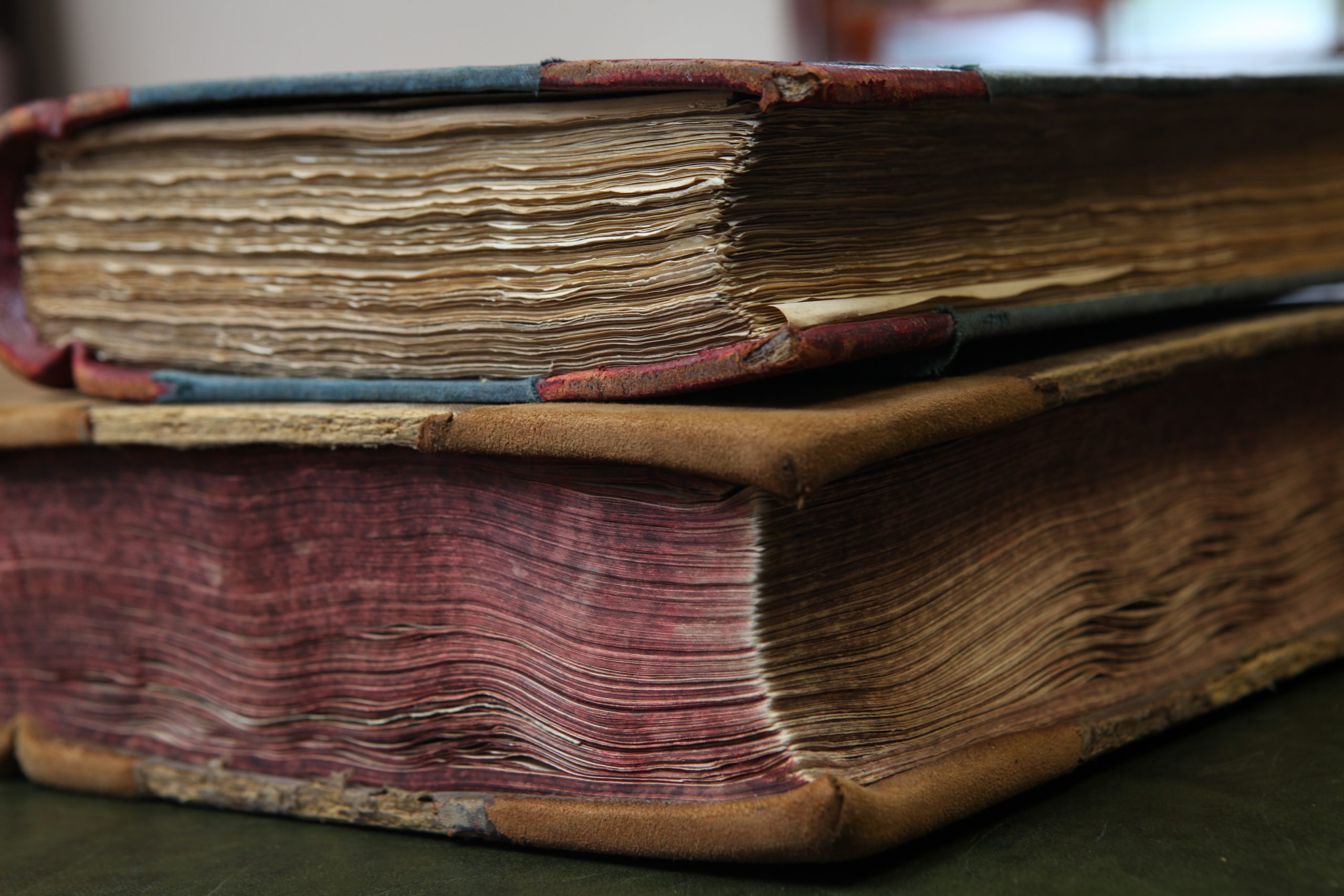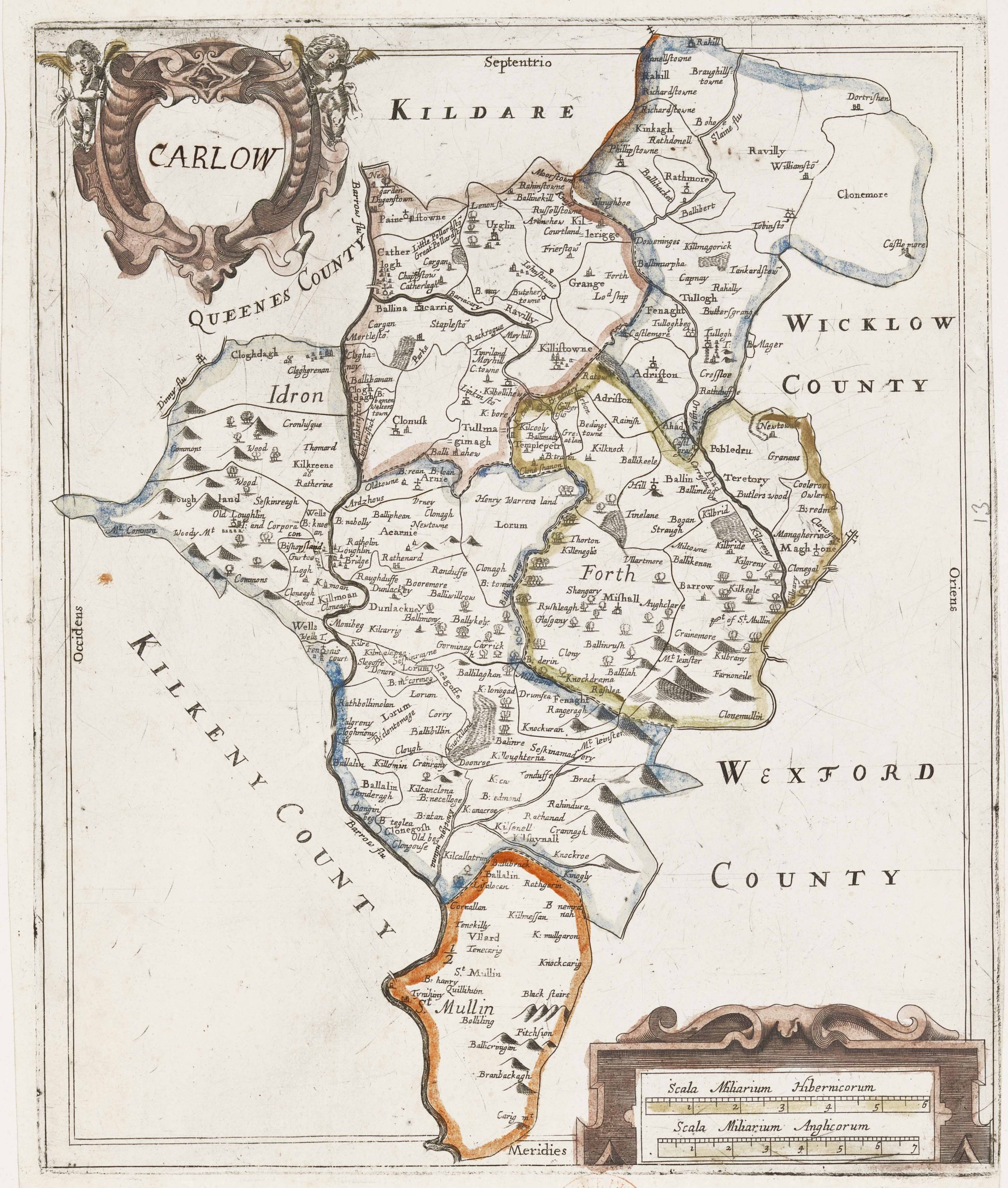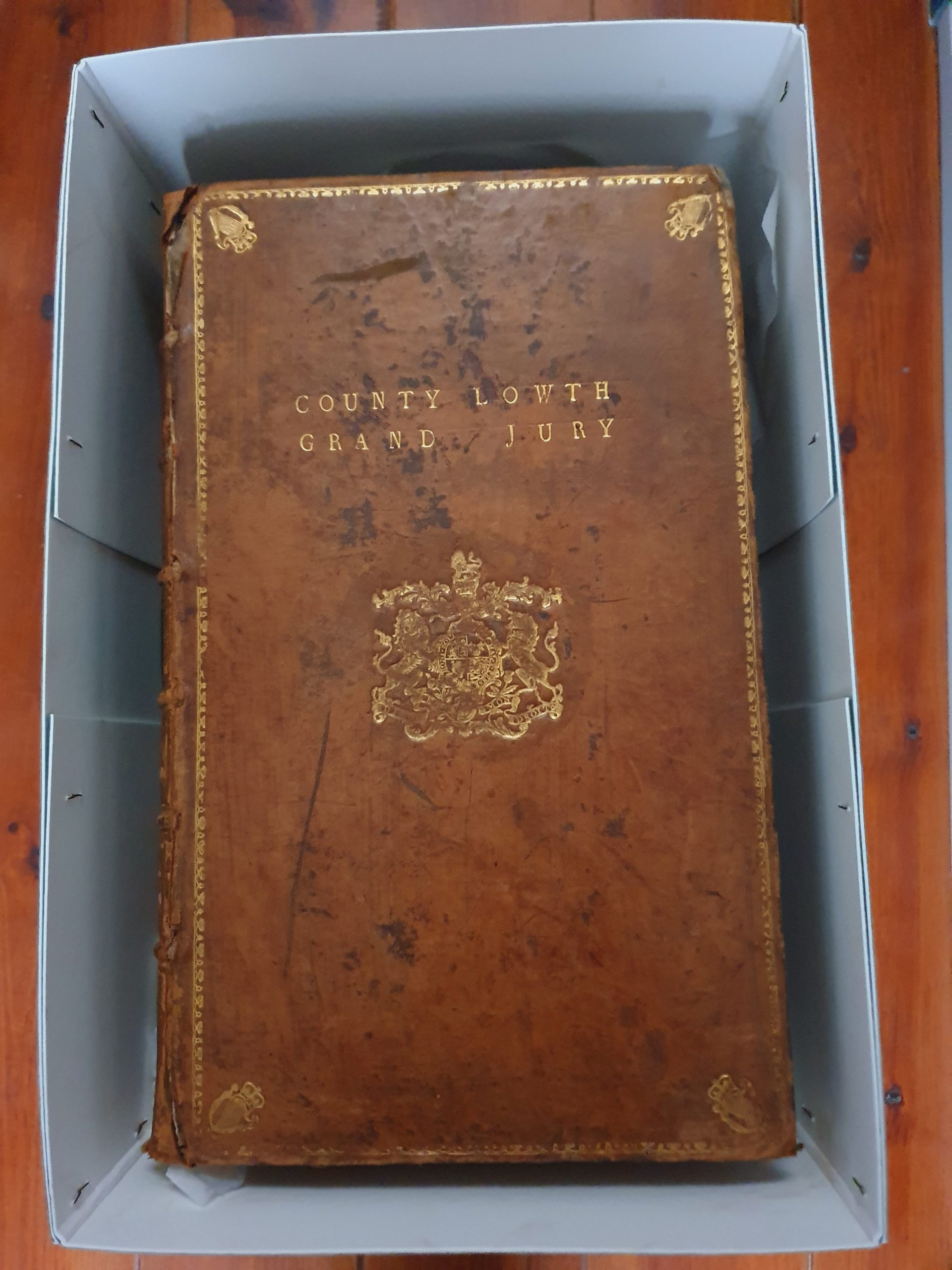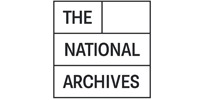

Grand Jury Records and Maps – Delving Deeper
The Grand Jury system of local government operated in Ireland from medieval times. Initially the grand jurors, consisting of local wealthy landlords, were concerned with the administration of justice. Court sittings took place twice a year in spring and summer. Over the course of the seventeenth, eighteenth and nineteenth centuries the grand juries were given broader functions such as building roads and bridges, schools, hospitals, public buildings and the county gaol, as well as tax (county cess) collection.
The range of duties carried out by the grand juries from the late eighteenth and particularly the nineteenth century is well-documented in the many assizes and presentment books, as well as other grand jury records which survive such as contract books, maps, minutes of meetings, accounts and correspondence. The survival rate of grand jury records varies from one local authority to another. Some presentment records date back to the early-eighteenth century.
Extraordinary events in the grand-jury era include the 1798 Rebellion, the 1801 Act of Union, the Great Famine, the Land War and the eventual modernization of local democracy in 1898–9. Administrative duties of the grand juries ended in 1899, when the 1898 Local Government (Ireland) Act was implemented and the more democratic County Councils, Urban and Rural District Councils were established.
The archives of the grand jury reflect the gradual changes that took place in society and national and local politics, while exposing the archaic nature of the grand jury system itself. The grand jury’s increasing workload is evident in the archives’ presentments, which refer to contracts for road works, bridges, asylums, hospitals, schools, prisons, courthouses, and many other services. Their reports and minutes document everything from local ‘disturbances’, difficulty in tax collection, the role of the Royal Irish Constabulary, issues with public works, allegations of corruption (including among their own members), and poor performance by contractors.
Grand jury collections are generally available at local archive services, or in libraries in the Republic of Ireland. There are also significant collections in the National Archives of Ireland, National Library of Ireland, and the Public Records Office of Northern Ireland. Some are already available to view online.
Further Reading
Butler, Richard. ‘The radicals in these Reform times’: Politics, Grand Juries, and Ireland’s Unbuilt Assize Courthouses, 1800–50’, Architectural History, 58 (2015), 109–39.
Crooks, Peter (ed.), Government, War and Society in Medieval Ireland: Essays by Edmund Curtis, A.J. Otway-Ruthven and James Lydon (revised edition, Dublin 2019).
Crossman, Virginia. Local government in nineteenth century Ireland. Belfast, 1994.
Foley, Áine. ‘Violence and authority: the sheriff and seneschal in late medieval Ireland’, Proceedings of the Royal Irish Academy, 117 (2017), 185–206.
Foot, Charles. The grand jury laws of Ireland: comprising all the statutes relating to the powers and duties of grand juries, including orders in Council relating to presentments and all matters connected therewith: to which are added copious notes, tables of cases reported under various acts, forms of procedure, criminal jurisdiction, and an index. Dublin, 1884.
Garnham, Neal. ‘Local elite creation in early Hanoverian Ireland: the case of the county grand jury’, The Historical Journal, 42:3 (1999), 623–42.
Vanston, George. The grand jury laws of Ireland: being a collection of the statutes and orders in Council relating to the presentment of public money by grand juries, and matters connected therewith, with notes, tables of cases and statutes, additional forms and an index. Dublin, 1883.









